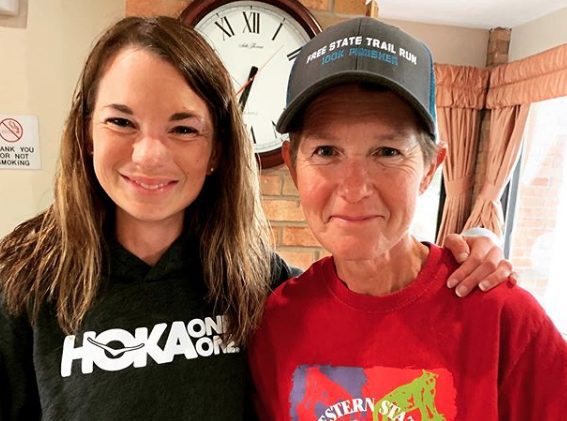WATCH: Kaci Lickteig and others open up about disordered eating
Altra has produced a 12-minute video with three top American trail runners talking openly about the personal challenges they have faced

A few months ago, Altra released a short film entitled The Weight of Mountains featuring three very accomplished ultrarunners talking openly about their experiences with trauma and disordered eating, and the role running has played in their recovery. One is Kaci Lickteig, who won the Western States Endurance Run in 2016 and finished third at this year’s race, held last week. It was Lickteig’s seventh finish at WSER.
RELATED: Missed periods and stress fractures: Rachel Hannah’s story
Lickteig, Amanda Basham and Meredith Edwards are all Altra athletes who have stood on podiums at some of the world’s most prestigious 100-mile races. (Basham also started at WSER, but dropped.) In the film, the focus is on the things they struggled with in their lives that had (mostly) nothing to do with running.
Chris Jones, director of marketing for Altra, says the idea came from Basham, who had dealt with an eating disorder. But initially the idea was not to make a film about eating disorders. It’s not in the film, but Basham had lost her brother to a drug overdose, and she wanted to use her stature in the running world to encourage people to reach out for help, no matter what they were going through.
https://www.instagram.com/p/ByJa8QqnnWC/
“After Amanda brought the concept to us, we reached out to the rest of the women on our elite athlete team, as we knew several of them had used running to overcome their different mental and emotional struggles,” says Jones. “It was a very powerful piece to work on and even more powerful once it was released. All the credit to the success goes to these three women for opening up and telling their emotionally powerful stories.”
Lickteig’s obsession with thinness started in high school, and it did involve running, since she perceived that the other girls were running as much as possible simply to lose weight. Eventually she confessed to her mother that she had a serious problem and needed help, after which she spent two months recovering in the eating disorders unit of a children’s hospital. “I came out of there a new person,” Lickteig says in the film. Thankfully, running eventually became a way to help her stay healthy and strong, rather than something that made her weaker.
https://www.instagram.com/p/BtywybjHxfQ/
RELATED: The male athlete triad
For most of her life, Edwards, an ultrarunner and skier, had dealt with severe anxiety resulting from childhood abuse. In the film, she reveals that by sixth grade she had an ulcer. Eventually, running became something that helped her feel safe, and an important tool in her recovery. “It was building my self-esteem up, and my confidence, almost every day. I was really overcoming obstacles. I felt so good about myself, and in that way running started to give my life back.”
https://www.instagram.com/p/BumhvuNn_80/
Edwards talks about running as a tool for recovery, but implies that therapy is essential. All three women use the film as a platform to encourage others who may be dealing with something to start with the simple act of reaching out for help. And the women’s results are proof that recovery, and success in running, are possible.


